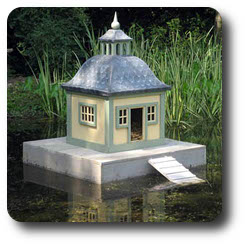Saturday 31 October, 10.30am until 12.00pm, Student Union
 ‘Without general elections, without unrestricted freedom of press and assembly, without a free struggle of opinion, life dies out in every public institution, becomes a mere semblance of life, in which only the bureaucracy remains as the active element. Public life gradually falls asleep…’ Rosa Luxemburg
‘Without general elections, without unrestricted freedom of press and assembly, without a free struggle of opinion, life dies out in every public institution, becomes a mere semblance of life, in which only the bureaucracy remains as the active element. Public life gradually falls asleep…’ Rosa Luxemburg
The forthcoming UK election is likely to focus attention once again on our parliamentary institutions and constitutional arrangements. This time the debate should perhaps go beyond the usual questions of whether we should make our voting system more proportional or further devolve power to the Welsh Assembly and Scottish Parliament. Today the very legitimacy of the system is in question, with public respect for Parliament perhaps at an all-time low. 2009 has seen the traditional protection of parliamentarians undermined from within when the Serjeant at Arms allowed police to arrest Damian Green, and then the MPs’ expenses scandal, leading to reform of the role of the speaker. New speaker John Bercow promised a clean break, with various reforms to modernise the Commons while protecting the rights of backbenchers and restoring the integrity of Parliament. But is it too little too late?
While some observers worry the sovereignty of Parliament is being eroded, advocates of reform have called for further checks on MPs. The Lord Chief Justice recently criticised plans for an independent body to oversee MPs expenses, as it risks a dangerous conflict between judges and Parliament. But should the authority of Parliament be checked in the interests of accountability, transparency and sound modern governance? Are old institutions worth defending, or should we get rid of a system riddled with problems? As the election draws closer, should we even bother to exercise our right to vote, or is the really progressive thing to look elsewhere for democratic revival?
Indeed, to add to the parliamentary chaos, political parties look increasingly defunct, with membership at an all time low, while voter turnout was a mere 61% in 2005. Does the rise of independents and fringe groups signify a negative rejection of collective politics or a positive opportunity to move towards new collective ideals?
Listen to the session audio…
Other formats are available here
 | Jessica Asato acting director, Progress; editor, Progress Magazine |
 | Martin Bell former independent MP for Tatton; author, A Very British Revolution: the expenses scandal and how to save our democracy |
 | Dr James Panton head of politics, Magdalen College School, Oxford; associate lecturer in politics and philosophy, Open University; co-founder, Manifesto Club |
 | Graham Smith chief executive, Republic |
| Chair: | |

|
Suzy Dean
freelance writer; blogger, Free Society |
 A book to set democratic alarm bells ringing
A book to set democratic alarm bells ringing
Martin Bell’s account of the expenses scandal has insights, but his willingness to embrace infringements upon parliamentary sovereignty in the name of restoring trust denigrates democracy.
Suzy Dean, spiked, 30 October 2009'I was for three and a half years on the Standards and Privileges Committee so I saw the regulatory machinery in action and some members of that committee left their party allegiances at the committee room door and others did not... My experience is that the House of Commons cannot be trusted to police itself.'
Martin Bell interviewed by Angus Kennedy, Independent Independent Minds, 27 October 2009
 The revelations over MPs' expenses that began in May 2009 ranged from petty thieving to outright fraud and sparked a crisis in confidence unprecedented in modern times. This was a 21st-century Peasants' Revolt - an uprising of the people against the political class.
The revelations over MPs' expenses that began in May 2009 ranged from petty thieving to outright fraud and sparked a crisis in confidence unprecedented in modern times. This was a 21st-century Peasants' Revolt - an uprising of the people against the political class.
Martin Bell, Icon Books, 1 October 2009
Dozens of Conservative parliamentary candidates are working in the lobbying industry that seeks to influence their party’s leadership.
Tom Baldwin and Alice Fishburn, The Times, 25 September 2009The voting system masks a fragmenting club of three. Calls for reform will go on, whoever wins.
Vernon Bogdanor, Guardian Comment is Free, 23 September 2009The combative and hostile pantomime of PMQs is symptomatic of a hostile working climate in which bullying has become commonplace.
Paul Evans, Total Politics, August 2009Former anti-sleaze MP Martin Bell and ex Church of England envoy Terry Waite are considering fielding candidates at the next general election.
BBC News, BBC News, 18 August 2009The Pirate Party - which won a surprise seat in the European Parliament in Sweden - has launched in the UK.
BBC News, 13 August 2009 The Tories and the tyranny of anti-politics
The Tories and the tyranny of anti-politics
Anyone interested in Big Politics and society-shaking debate should challenge the Conservative Party’s ‘clean politics’ agenda.
Brendan O'Neill, spiked, 11 August 2009The Commons is set to become a chamber of professional politicians, dependent on the taxpayer, and therefore remote from the millions of Britons who aren't - especially the hard-pressed and overtaxed middle classes.
Paul Goodman, Daily Mail, 4 August 2009To suggest reform of a parliamentary system steeped in the anachronism of traditional class struggle is a retreat from reality
Jeremy Seabrook, Guardian Comment is Free, 31 May 2009Between them, the cash-for-honours affair and the questions raised about Lord Goldsmith's impartiality as Attorney General are casting a long shadow over the whole of British political life. The shadow besmirches not merely the Prime Minister's own reputation but that of all the major political parties and politicians in general.
Anthony King, Telegraph, 5 February 2007